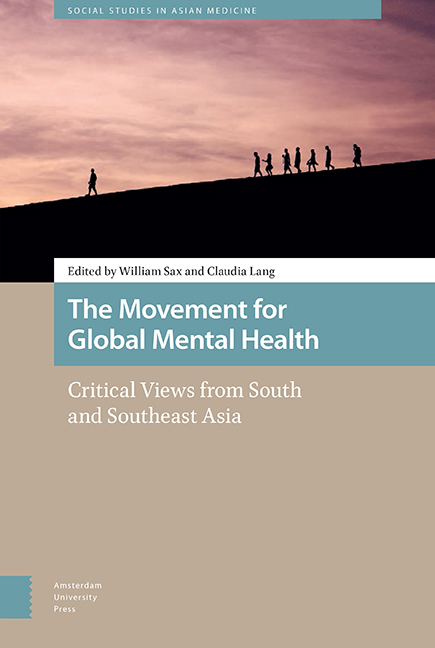8 - Ayurvedic Psychiatry and the Moral Physiology of Depression in Kerala
Published online by Cambridge University Press: 27 May 2021
Summary
Abstract
The GMH movement has not considered psychiatric traditions outside mainstream psychiatry. By highlighting the existence and significance of Ayurvedic mental health care, I challenge the notion of a “treatment gap” in India. At the same time, focusing on Ayurvedic psychiatry as an alternative to globalised biomedical psychiatry and highly dynamic field, I go beyond the usual dichotomy of global psychiatry and local traditional healing by showing how a (re)invented tradition assembles local bio-moral embodied minds, classic texts, vernacular practices, and globalised psychiatric and psychological knowledge to recognise and treat distressed, embodied minds. Against the narrative of traditional medicine as the epistemic “other” to Western psychiatry, I will describe how Ayurvedic psychiatrists engage elements of globalised psychiatry and psychology while stressing Ayurveda's epistemic difference and embodied alterities.
Keywords: Ayurvedic psychiatry, depression, moral physiology, embodied minds, Kerala
Ayurvedic psychiatry is one of many highly dynamic indigenous medical fields addressing mental health problems. Proponents of global mental health – and most allopathic psychiatrists and health policy makers in India – ignore indigenous medicine when they talk about the “treatment gap” in many lower- and middle-income countries such as India (Chisholm et al. 2016; Patel and Thornicroft 2009): that is, the difference between the number of people estimated to need treatment for mental illness and the number actually receiving it. While this ignorance persists amongst many proponents of global mental health, the recently published report of the Lancet Commission on global mental health and sustainable development (2018) provides hope in arguing for “respecting the complementary role of […] local traditional approaches to treatment” (Patel et al. 2018).
By highlighting the existence and significance of Ayurvedic mental health care, I challenge the notion of a “treatment gap” in India. At the same time, focusing on Ayurvedic psychiatry as an alternative to globalised biomedical psychiatry and highly dynamic field, I go beyond the usual dichotomy of global psychiatry and local traditional healing by showing how a (re)invented tradition assembles local bio-moral embodied minds, classic texts, vernacular practices, and globalised psychiatric and psychological knowledge to know and treat distressed, embodied minds. Against the narrative of traditional medicine as the epistemic “other” to Western psychiatry, I will describe how Ayurvedic psychiatrists engage elements of globalised psychiatry and psychology while stressing Ayurveda's epistemic difference and embodied alterities.
- Type
- Chapter
- Information
- The Movement for Global Mental HealthCritical Views from South and Southeast Asia, pp. 243 - 270Publisher: Amsterdam University PressPrint publication year: 2021

